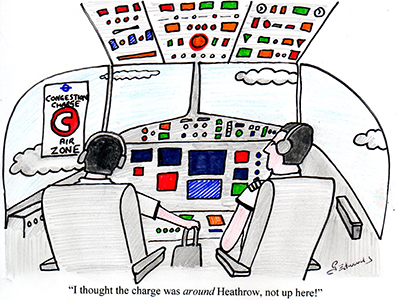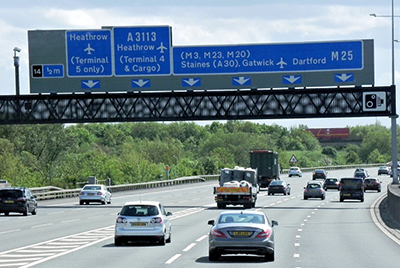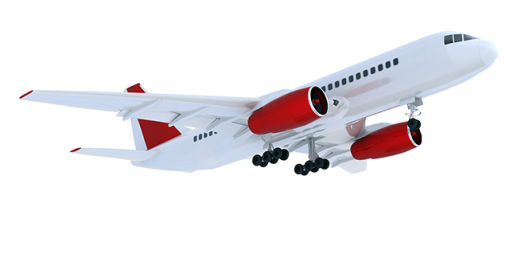 The UK government has often planned to build a third runway at Heathrow airport. The scale of the investment means that the decision will affect the whole of the UK, but in fact, different places will experience very different economic, social and environmental impacts. The government's decisions about the airport will not only have to balance the overall costs and benefits, but also how they are spread out across the country. This article is a quick exploration of the costs and benefits of expanding Heathrow, focusing on the geographical techniques of analysis you would learn in the OU’s “Environmental Studies” courses.
The UK government has often planned to build a third runway at Heathrow airport. The scale of the investment means that the decision will affect the whole of the UK, but in fact, different places will experience very different economic, social and environmental impacts. The government's decisions about the airport will not only have to balance the overall costs and benefits, but also how they are spread out across the country. This article is a quick exploration of the costs and benefits of expanding Heathrow, focusing on the geographical techniques of analysis you would learn in the OU’s “Environmental Studies” courses.
Airports are particularly interesting for geographers because they are an almost perfect example of how scale, distance and network are more complicated than you might initially think. And Heathrow is more complicated than most airports! Firstly, airports are about connections, and by some counts Heathrow is the second busiest airport in the world. This makes it a globally important centre of travel. Secondly, physically, airports have huge effects on the areas around them, but are actually quite small. Unlike most airports, Heathrow is inside London's western suburbs, rather than in the nearby countryside.
On the global scale, another runway will allow Heathrow to offer more flights. However, if you’re only focusing on the total number of flights in the UK then you could expand anywhere. The big reason to expand Heathrow is to make it a bigger “hub” airport. This firstly makes more room for short-distance connecting flights to land at Heathrow, and by increasing the number of people who can get to Heathrow the airport can also start to offer a larger variety of long-distance flights. For example, there might not be enough people regularly travelling from Liverpool to Beijing to justify direct flights every day. However, if everyone in the UK can easily fly to Heathrow, then there should be enough demand to run multiple daily flights between China and London.
Depending on how you look at it, and the specific way of doing it, making Heathrow into a bigger hub airport could increase the UK’s ability to conduct international business, but it might also be argued to increase London’s dominance over the rest of the country. In contrast, you can argue that the rest of the UK would economically benefit from links to a variety of overseas hubs, rather than a total reliance on Heathrow. This is explored in more detail in this article from City Metric.
The decision to expand Heathrow is, of course, not just about the economy. There are also political calculations, particularly in the wake of the “Brexit” vote to leave the EU. Given that we don’t know what the outcomes of Brexit and leaving the European Union would be, it may become increasingly important to have the UK’s hub airport inside the UK. Furthermore, committing to airport expansion shows that the UK is “open for business”, according to the government. Alternatively, if Brexit makes it more difficult for people to visit the UK, or if a recession reduces demand for travel, then there may be no economic need to expand Heathrow at all. But government press releases have also stressed that a hub airport will bring the UK nations together, by allowing Heathrow to offer more domestic flights to British cities. Irrespective of your views on Brexit, these examples show that particular types of airport expansion will fulfil very different symbolic and practical goals. Analysis isn't just about calculating the total number of flights going to, from and around a country - it's about the networks and activities you want to encourage.
 Moving towards a more local scale of anaylsis, airports are not only international. They can also prompt us to consider how big systems are anchored in local scales and sites. For example, a study by the UK’s Airports Commission investigated how people on the ground are affected by the noise pollution for each one of an airport’s flights. Heathrow emerged as not only the worst airport in the UK, but the worst airport in the whole of Europe. Much of this is simply because Heathrow is inside London’s suburbs, rather than in the nearby countryside. This is a key reason that the Mayor of London has tended to oppose Heathrow’s expansion - both the previous Conservative Mayor Boris Johnson and the current Labour Mayor Sadiq Khan are against the air and noise pollution it would bring.
Moving towards a more local scale of anaylsis, airports are not only international. They can also prompt us to consider how big systems are anchored in local scales and sites. For example, a study by the UK’s Airports Commission investigated how people on the ground are affected by the noise pollution for each one of an airport’s flights. Heathrow emerged as not only the worst airport in the UK, but the worst airport in the whole of Europe. Much of this is simply because Heathrow is inside London’s suburbs, rather than in the nearby countryside. This is a key reason that the Mayor of London has tended to oppose Heathrow’s expansion - both the previous Conservative Mayor Boris Johnson and the current Labour Mayor Sadiq Khan are against the air and noise pollution it would bring.
The way that different effects and scales combine at airports also means that they are good way of thinking about how costs and benefits are unevenly spread out. Firstly, although the plan is for the airport expansion to be paid for by private business, all UK taxpayers will be paying for the cost of increasing road and rail access to the new runway. So the (hopefully) national, indirect benefits of Heathrow’s expansion will have to be balanced by the fact that London will get yet more investment in its local transport infrastructure, and will directly benefit from the additional jobs created by the airport’s construction and operation. But on the other hand, in order to limit the health damage caused by pollution from the additional flights, the Mayor of London may have to introduce a congestion charge around Heathrow to discourage driving. It is even possible that any increase of air traffic at Heathrow will have to require an equal reduction of road traffic across much of west and central London. Irrespective of whether you think airports are a good or bad thing, it is very difficult to share the costs and benefits equally when they cross between scales and locations.

Rate and Review
Rate this article
Review this article
Log into OpenLearn to leave reviews and join in the conversation.
Article reviews